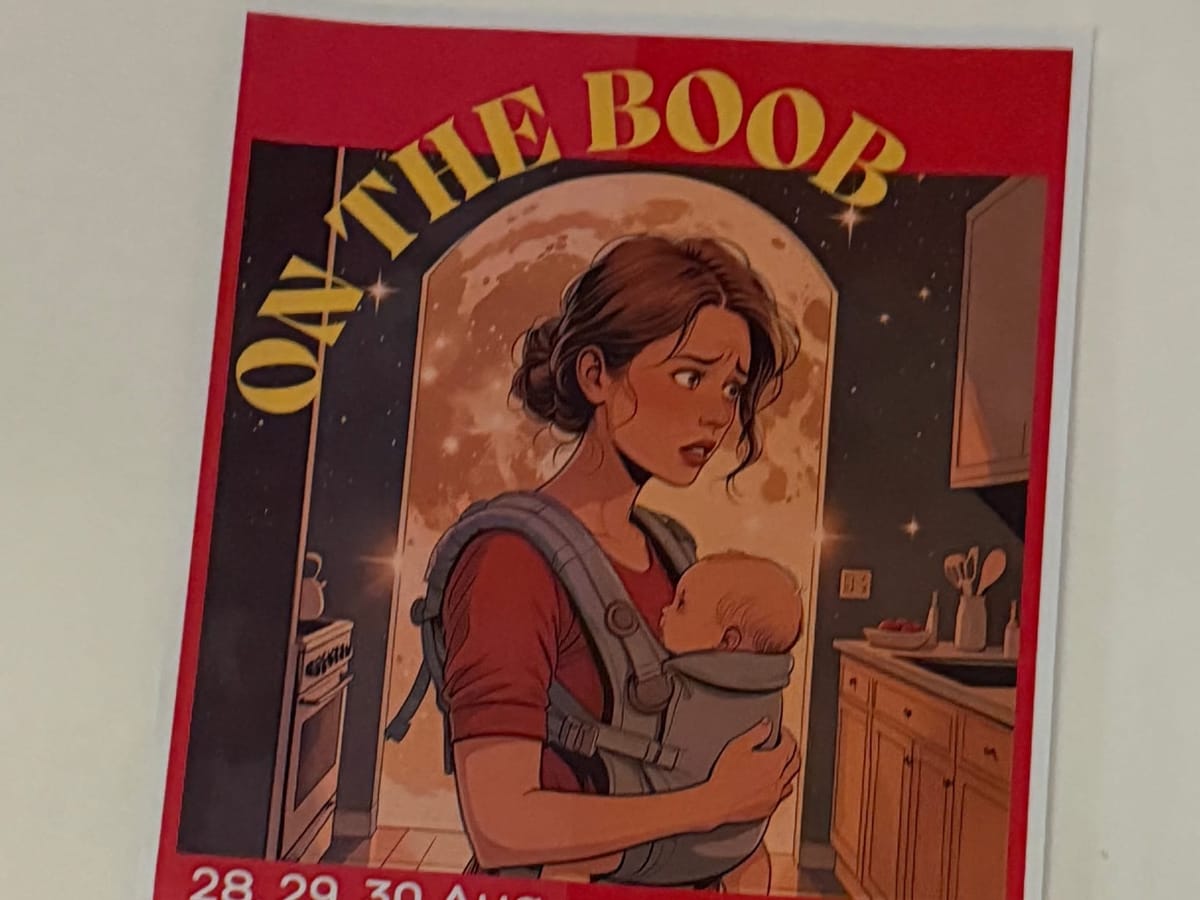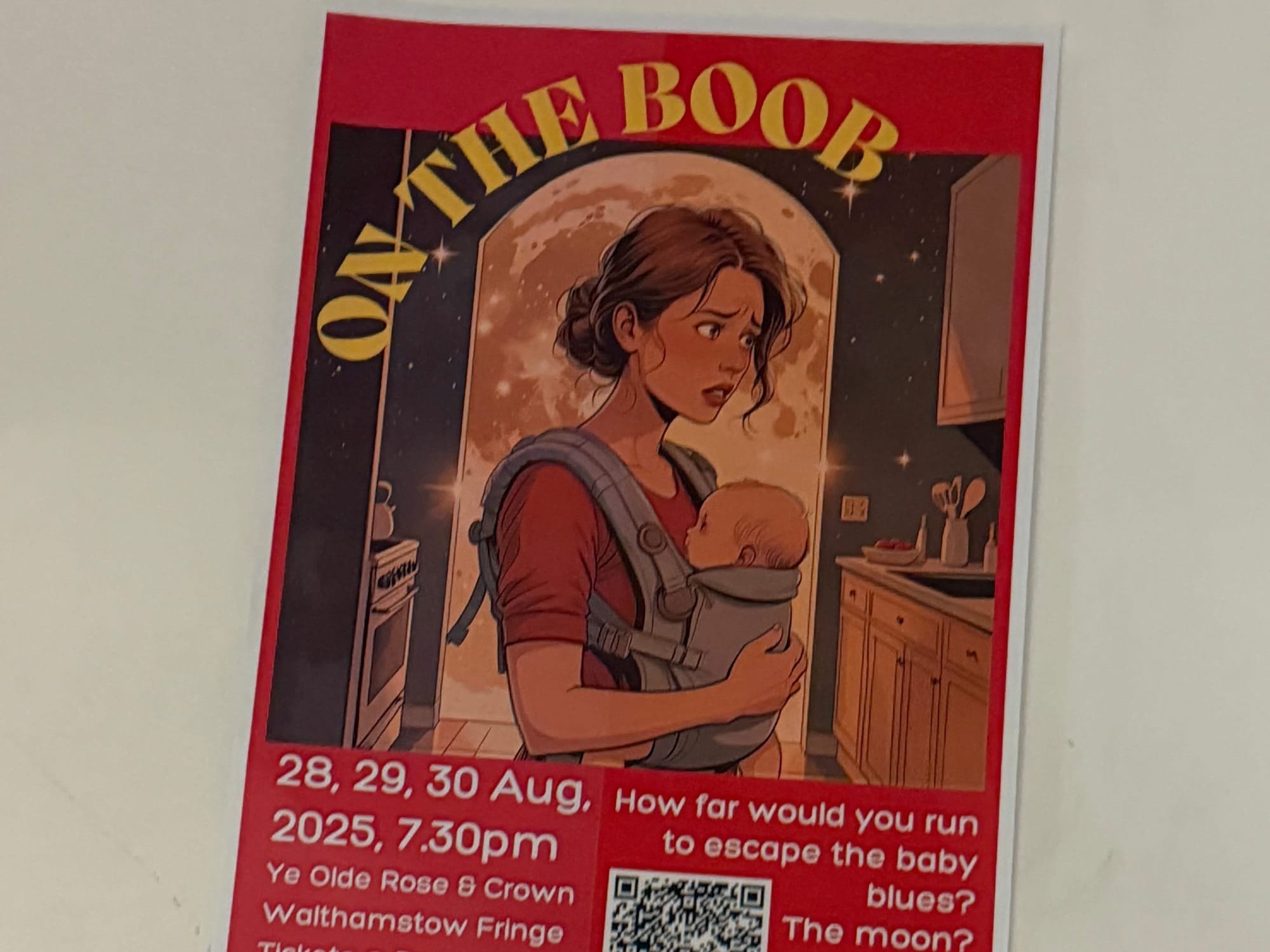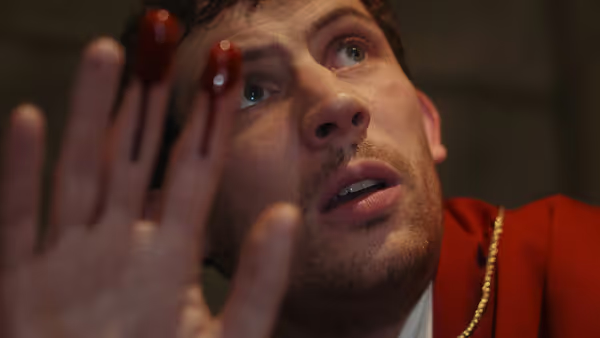On the Boob | Walthamstow Fringe
An earnest and fantastical portrait of a woman wrestling motherhood with both hands.

Full disclosure: The director of 'On The Boob', Lucie Neale, may sound like a very familiar name – it is, dear reader, one of our own. We don't just have writers who write about art on our staff, we have artists who do it. Lucie is also a dear friend, but I promised her honesty, so my personal opinions will be put to the side in the pursuit of a constructive and professional review.

Reader, I've witnessed a lot of fringe theatre in my life. I've even witnessed a lot of fringe theatre that my friends have put on – not much of it was good. I always find the good - the performances, or the subtleties that make a piece unique – we are, after all, artists trying to sharpen our tools. Often, though, my friends can tell that I don't love a piece they've starred in or made - and it's a guilt I carry that I can't fake it better.
My expectations going into "On the Boob" were mixed – I love stories about motherhood, but only when they're done well, and that's not often. I know my friend is talented, but I also know that fringe theatre is a tough gig, and you need to have mighty vision to pull it off.
It is with great relief that I say my friend and her colleagues punched three or four classes above their weight with this story and this staging at Walthamstow Fringe – and that I really, truly loved it.
"On the Boob" is both an irreverent and deeply earnest look at how one woman navigated a difficult pregnancy – both through lockdown and through baby blues. At times it breaks out into comedy, other moments are more somber, but the piece always maintained a pace I found refreshing: to paraphrase, "That's enough self-pity for mummy today".
This is not just a piece about the trenches of motherhood – this is the kind of well-rounded, honest, confident writing that I would be used to finding much more centrally than Walthamstow, with all respect to the place. The way it was staged, the sound design (which was comedic, snappy, and at times profound, without being too on the nose), and most certainly the performances, felt bounded by their fringe-ness, awaiting freedom into a more funded nature.
More than anything, Writer Vicky Ellis managed to make the joy offset the sorrow, and the sorrow offset the irony, leading to this perfect mix – a radiation of love from the material to it's protagonist (which is so rare for women to have a chance to bask in, in this industry). We don't let Mama lie for too long, but we don't paper over the cracks. We laugh to keep from crying and cry anyway, almost indulgently, cathartically.
A highlight for me was the use of a double for Mama - a voice that could converse, crack open, interact with her in both compassionate and realistic ways - a running inner monologue made manifest without any indulgence or corniness. Chantelle Micallef Grimaud has an incredibly astute comedic timing, and allows her costars - Lauren Anthony as Mama and Gavin Foden as her husband, to really ground the piece, by committing wholeheartedly to the madness in every facet.
I would be remiss if I didn't call out Lucie - again, to remind you, my dear friend, but also someone I could never lie to - and say that her signature wit and creativity shone through the piece undeniably, and was indelibly hers. If you've seen her TikToks from her time directing and starring in the long-running show "NewsRevue", you will immediately be able to pick up on the hallmarks of her cadence and style woven through "On the Boob" with an unselfconscious subtlety. This was what took the piece above Fringe for me - all the small and big ways the production didn't act small, or play small, allowed the true potential of the writing, and the brilliant performances, to rub shoulders with bigger boys than their budget.
Where I felt the piece needed work was in its timing - the pacing was sharp, and brilliant, but at least during our performance, the cadence of the piece seemed at odds with the performers. Some jokes that would have killed, fell flat – all things that a longer run of the play I'm sure would press out.
I hope the team have ambitions for the piece beyond this, because I do believe it's going to chart a path to being a really important piece of work for many once it's given a chance to be a more fleshed-out production – especially because it balances the grief with the levity, at a time where piling on the grim and suffering is du jour.
All I can say is – thank god it was good.



